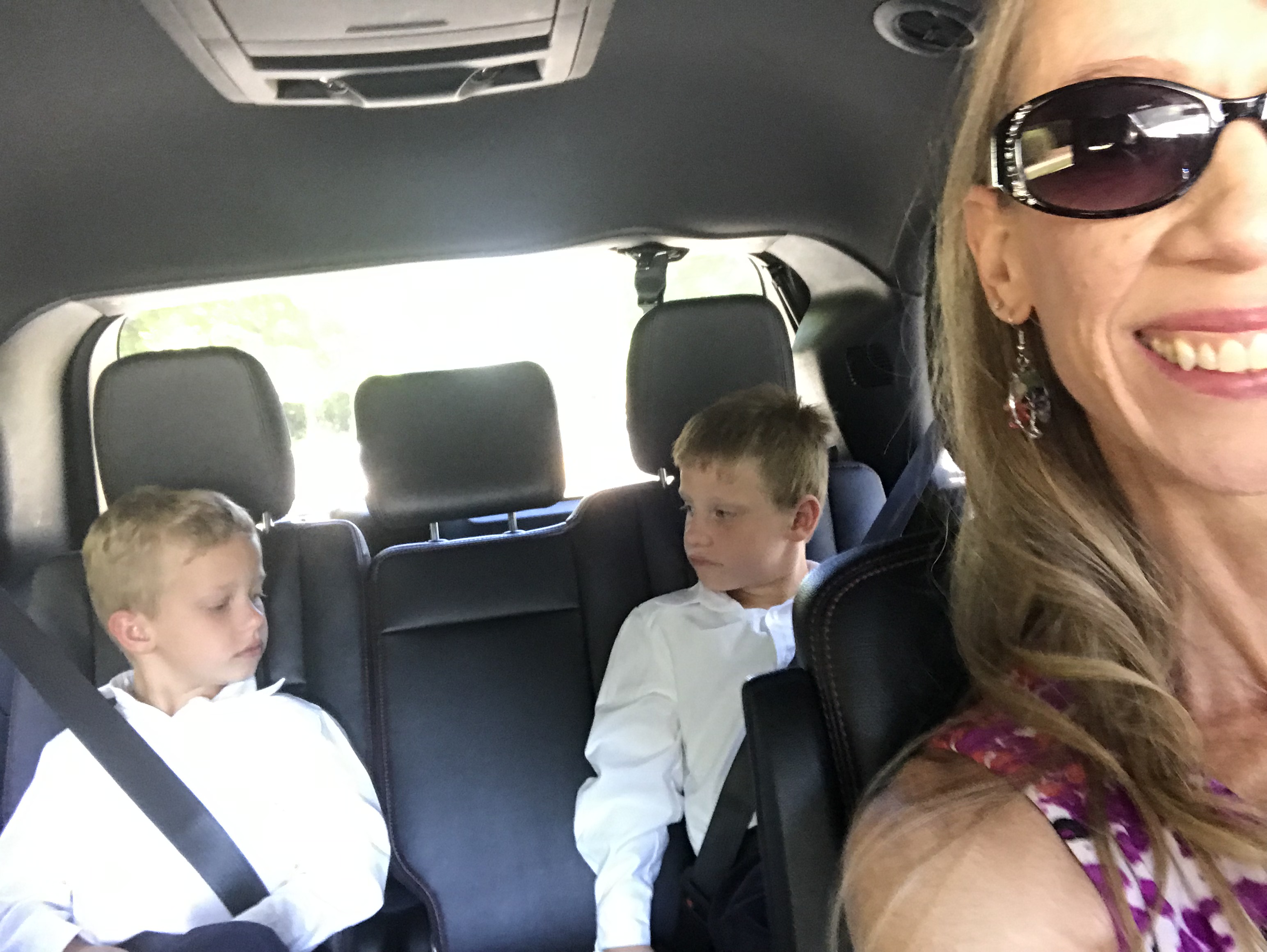Everything you need to know to build powerful relationship management skills to positively influence any situation.
Part 6: Building Emotional Intelligence with Relationship Management Skills
By now, if you have followed this series on emotional intelligence (EI or EQ), we have covered the definition of EQ, how to build a practice for EQ through mindfulness, stress effects on EQ, and the first three components of EQ: self-awareness, self-management, and social awareness. To start, for parts one and two, several strategies were provided to help us develop a mindfulness practice and manage the stress in our lives.
Next, in parts three, four, and five, additional strategies were provided to help us increase the use of each component of EQ. First, in part three, we took a deep look at ourselves through the lens of self-awareness. Next, part four showed us what it would be like to have control over our emotions through the lens of self-management. Even more, part five helped us to see and understand those around us through social awareness. Finally, it is time to put it all together with the final piece of EQ- relationship management.
What is relationship management?
If you peel the words apart, relationship management is a strategy or process to build and manage the relationships in our lives so that we benefit from the relationships instead of feeling drained by them. Exploring this concept deeper, relationship management uses the first three components of EQ to understand our emotions and the emotions of others and to use that information to influence and interact with others successfully.
Moreover, effective relationship management is not just managing interactions with people. It is actually building stronger relationships with people so that we increase our sphere of influence to get more of what we want and less of what we don’t want. In other words, the stronger your relationship with others, the more likely you will be in getting your point across and turning conflict into win-win situations.
What does managing relationships look like?
Next, as a leader, supervisor, manager, or an individual who must interact with others, managing relationships means you are able to build rapport and strong relationships easily by reading people and their emotions. Furthermore, you use that information to create a safe environment for discussion without judgment. Leaders who rate high on relationship management will have an open door policy and be able to maintain a professional demeanor no matter what comes their way.
Remember, people are always watching and mimicking as that is one of the easiest ways to learn! Additionally, those with a high relationship management score display patience in uncovering root issues. Furthermore, they are empathetic towards the situation or people while interacting with them. Lastly, leaders express their feelings without drama, blame, or feeling judged.
What are the prerequisites of effectively managing relationships?
The prerequisites for effective relationship management are having a good grasp of the first three components of EQ and effectively communicating and managing relationship conflict. To explain, relationship conflict is any kind of tension, animosity, distrust, fear, anger, or frustration that may come up when interacting with an individual or group of people. Moreover, relationship conflict may surface as negative communication and lack of ownership, cooperation, and collaboration in solving issues.
Leaders who display empowering leadership behaviors such as encouraging autonomy, self-management, and confidence in managing conflicts are better able to motivate their teams and keep relationship conflict to a minimum; therefore, increasing their team’s performance. However, leaders who do not address relationship conflict and allow it to continue, actually demotivate their teams, leading to poor performance and lack of team and organizational commitment.
How do you increase your relationship management skills?
First, you must be willing to put in the time and effort needed to make relationships work. Yes, relationships take work. Second, you must be able to notice your feelings and determine if you are getting what you need out of the relationship or interaction. Ask yourself, “Are your needs being met (self-awareness)?”
Third, you must be able to express your feelings and needs in a way that respects the other person(s) and shows your willingness to build a stronger relationship and resolve the issue (self-management). Fourth, you must also be able to understand the feelings and needs of the other person(s) and express that in a way that shows your interest (social awareness). Next, here are two easy exercises you can practice to help you be the builder rather than the breaker of relationships and increase your sphere of influence.
Exercise 1: Anger with a purpose.
One of the number one emotions to surface when interacting with other people is anger or frustration. How you use this anger is what either moves the conversation and relationship forward or sets the relationship back. To try this, either think of a person or situation (or multiple) that angers or frustrates you and write down your answers for each or try this the next time you find yourself becoming angry.
- Self-awareness: What need of yours is not being met? Where does your anger or frustration come from? Name it!
- Self-management: How could you express your feelings in a way that shows concern for the relationship?
- Social-awareness: Think about the people or person involved and their possible reactions. Would expressing your feelings help or hurt the relationship? How would the other person(s) likely respond? Finally, whether you just visualized or you actually try this, show your appreciation and gratitude towards the other person(s) for their efforts in making the relationship stronger.
Exercise 2: Address conflict head on with intention.
One of the biggest barriers to building strong relationships is avoiding the relationship. To address conflict head on, you must have the right intention- the intention to build the relationship to a level that works well for all parties involved. Ask yourself, what is the intention of the relationship? This does not mean becoming friends with everyone. It just means that you will put the right effort forward to ensure needs are met and expectations are set so that all may move forward amicably.
To do this, use your EQ skills to check yourself, understand what you need, read the other person(s), check to ensure you understand their needs, and agree on a goal for the relationship. What is the intention of your connection? Set expectations with each other on how, when, and for what purpose you will communicate. Last and most important, acknowledge and thank the other person(s) for their efforts. A simple, “Thank you for working with me in making our relationship stronger” can go a long way!
Conclusion
By effectively using all four components of EQ together, you can masterfully influence any situation and any relationship in your life. I did not say it would be easy; however, the path has been paved. It is up to you now to practice these skills so that you gain better control over your life and connect with others in a way that gives back to you rather than takes from you. The time and effort you invest to increase your EQ will come back to you 100 times over.
References
Block, P. (2011). Flawless consulting: A guide to getting your expertise used, 3rd Edition. [VitalSource Bookshelf Online]. Retrieved from https://digitalbookshelf.argosy.edu/#/books/9781118276785/
Bradberry, T., & Greaves, J. (2009). Emotional intelligence 2.0. San Diego, CA: TalentSmart, Inc.
Chen, G., Sharma, P. N., Edinger, S. K., Shapiro, D. L., & Farh, J. L. (2011). Motivating and demotivating forces in teams: Cross-level influences of empowering leadership and relationship conflict. Journal of Applied Psychology, 96(3), 541–557. Retrieved from http://dx.doi.org/10.1037/a0021886
Dyer, Jr., W. G., Dyer, J. H., & Dyer, W. G. (2013). Team building: Proven strategies for improving team performance, 5th Edition. [VitalSouce bookshelf version]. Retrieved from http://digitalbookshelf.argosy.edu/books/9781118838013/3/5
Kouzes, J., & Posner, B. (2010). The truth about leadership: The no-fads, heart-of-the-matter facts you need to know. San Francisco, CA: Jossey-Bass.
Hila, C. B., & Tzafrir, S. S. (2011). Consultant-client relationship: One of the secrets to effective organizational change? Journal of Organizational Change Management, 24(5), 662-679. doi:http://dx.doi.org/10.1108/09534811111158912
Mayer, J., Salovey, P., & Caruso, D. (2008). Emotional intelligence: New ability or eclectic traits? American Psychologist, 63(6), 503–517. doi:10.1037/0003-066X.63.6.503
Additionally, check out my interview on Parkbench.com. Meet Amanda – and learn about Dandi Within!
Also listed as one of the Top 3 Hypnotherapy services in Chandler, AZ.
Certified through:








